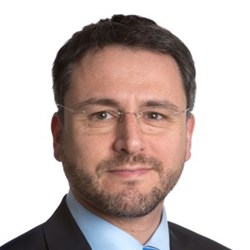France: a different view on business
Working in France successfully simply means understanding how the market operates - and how to make the most of the opportunities at hand.
Cited as one of the most romantic countries in the world, France has plenty to offer those visiting for pleasure and for businesses alike.
France is a buoyant market filled with opportunities for real estate investors and developers from across the world: Europe’s third largest economy has relatively low vacancy rates and rising rents in its main markets. Its capital, Paris, provides scale, liquidity and international cachet. Investment in French commercial real estate reached a record level of more that €41 billion in 2019, with Paris overtaking London to become Europe’s top market for international investors. Despite the current pandemic, interest in the country and the attraction of its capital city remains high.
Across different sectors, large multi-national companies such as LVMH, Total, EDF, L’Oréal and AXA all have their global headquarters in Paris and are at ease in their home market. But some international investors and developers can find the French way of doing business hard to navigate.
So what are the aspects of French business which might cause the uninitiated to become unstuck?
Working in partnership
The French have a very collegiate attitude towards work, involving long meetings and discussions which international clients can find off-putting. It is not unusual for someone in an exchange to take an opposing point of view simply because no one is currently occupying that quarter, just to provoke a healthy debate.
But these quirks of French attitudes generally mean that no stone is left unturned and a consensus is reached where all parties know where they stand.
Trust is also built outside of regimented work settings. French people are sometimes lambasted for their love of taking a proper lunch break, but taking time to establish deeper working relationships in a less formal setting often leads to more successful projects in the long run.
Contractual obligations
In France there is a very clear, formalised way of carrying out construction projects which is based on public sector contracts. French firms understand their contractual requirements - the tasks, project phases and roles required throughout a project - within this framework, yet there is no real standard form of contract for the private sector beyond this.
While contracting practices may be alien to international investors, they are familiar to the supply chain and are best suited to drive cost efficiencies and timely execution in the local market.
This also goes for the split of responsibilities between the main players on any site: the Maîtrise d’Ouvrage and Maîtrise d’Œuvre, and the role of the Entreprise Générale, which in France are set out by law.
In simple terms, the Maîtrise d’Ouvrage is the client or contracting authority, and the Maîtrise d’Œuvre is the architect and engineer. It is the latter which establishes the design of the work.
The Entreprise Générale, or general contractor, is responsible for executing the construction work.
Although on the surface this may simply match other countries approach to projects, there are some significant local specificities and idiosyncrasies. The advantage of sticking to the French way of working though, is that people’s roles are clearer and recognisable in the local market. It is therefore worth for non-French parties to spend time getting to grips with the local approach in order to understand the ecosystem of a project and how they fit into it.
Changes afoot
While the way the world works has undoubtedly changed due to the ongoing pandemic, major cities such as Paris will continue to be key locations for companies looking to advance in the continent’s most important markets.
We expect to see consolidation in office space in the coming months, with a move towards flagship spaces where people can hold meetings, which represent the company’s values, but aren’t necessarily used by workers on a day-by-day basis.
With France introducing a new law to achieve a carbon-neutral target by 2050, more investments are being made in the zero neutral technology arena, with developments seen in new mobility (battery plants) and renewable energy (hydrogen fuel cells).
Paris’ hub and spoke model, inherited from the Napoleonic era, means it is easy to travel in and out of town. Moving around will only get better with the Grand Paris project connecting suburbs. We believe high-end space in prime, well connected, inner-city and remote locations will remain in demand. Investment is also increasing into logistical platforms and technical buildings, such as data centres.
Those who understand the quirks of the French market, and are willing to work within its existing systems, will find themselves best placed to take advantage of opportunities across the real estate and high-tech sectors in the years to come.

